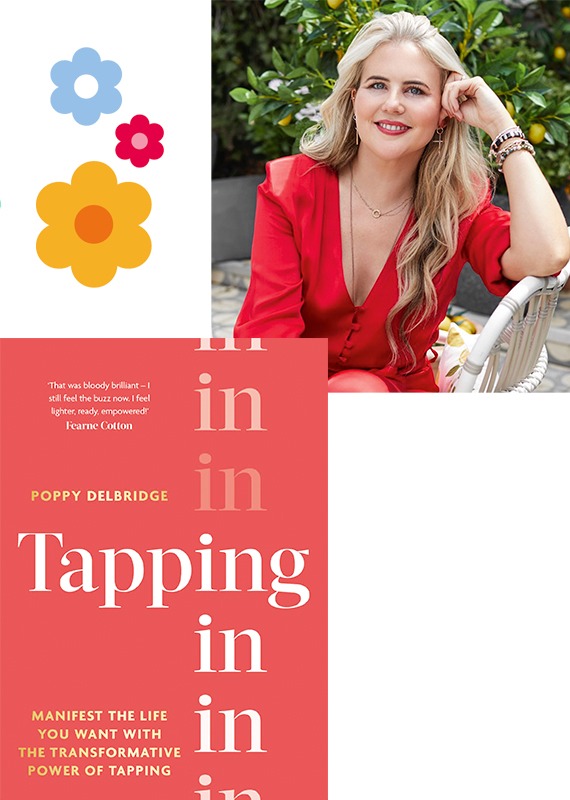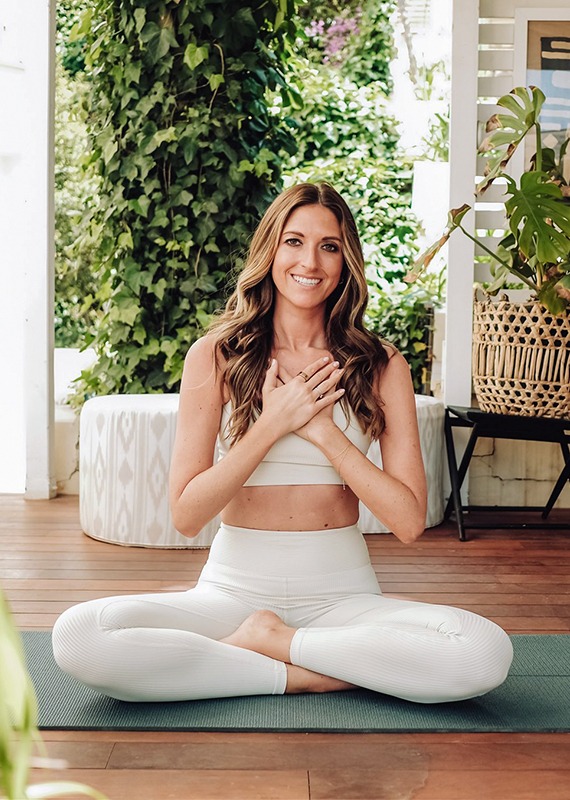If you suffer from stress, you’re not alone, according to a survey by Mental Health Foundation, 74 per cent of UK adults have been so stressed at some point over the last year that they felt overwhelmed or unable to cope*. And CIPHR’s Workplace Stress survey reveals that seven per cent of UK adults feel stressed every single day**. When long-term stress becomes overwhelming, its affects are felt mentally, emotionally and physically. We asked Dr Becky Spelman, psychologist and founder of The Private Therapy Clinic to explain why we feel stress, and advise us on how best to manage it. She tells us:
 Dr Becky Spelman is an expert in psychology and a mental health advocate
Dr Becky Spelman is an expert in psychology and a mental health advocate
“In short, stress is a natural response to demanding or challenging situations in life. It is the body’s way of preparing for a perceived threat, commonly known as the ‘fight-or-flight’ response. Although stress can be helpful in certain situations, chronic or excessive stress can have negative impacts on our bodies and overall wellbeing.”
Physiologically, stress triggers the release of stress hormones like cortisol and adrenaline, which increase heart rate, blood pressure, and the release of glucose for energy. In the short term, this can enhance focus and alertness, but prolonged exposure to stress can lead to various health issues. It can weaken the immune system, disrupt sleep patterns, and increase the risk of developing conditions such as high blood pressure, heart disease, and mental health disorders like anxiety and depression.”
To find out more, see theprivatetherapyclinic.co.uk/issues/stress-management
* mentalhealth.org.uk/about-us/news/survey-stressed-nation-UKoverwhelmed-unable-to-cope
** ciphr.com/workplace-stress-statistics
Becky’s dos and don’ts of stress management:
- Do be aware of your stress triggers and how it affects you. Understanding your stressors can help you develop effective coping strategies.
- Do practice relaxation techniques like deep breathing exercises, meditation, yoga, or mindfulness to stay relaxed and reduce stress levels.
- Do maintain a healthy lifestyle. Eat a balanced diet, exercise regularly, and get enough sleep. This is good for your overall wellbeing and can improve your resilience to stress.
- Do organise your life effectively. Prioritise the most important tasks, delegate wherever possible, and break larger tasks into smaller, more manageable steps. This will stop you from feeling overwhelmed and will reduce stress levels.
- Do build a strong support system. Friends, family and support groups can help to alleviate stress by listening, helping and spending quality time with you.
- Don’t rely on unhealthy coping mechanisms like excessive alcohol or drug use, overeating, or withdrawing from social interactions. This may provide temporary relief but can worsen stress in the long run.
- Don’t neglect self-care – taking care of your physical and mental wellbeing is essential. Make time for activities you love and that help you to relax.
- Don’t strive for perfection – this can create unnecessary stress, so accept that nobody is perfect and focus on your personal progress rather than on achieving flawless outcomes.
Developing Habits that Help you to Cope
As Dr Spelman recommends, employing good coping mechanisms is essential; we take a look at a couple of the things you can do to help effectively manage stress.
Poppy Delbridge, best-selling author of Tapping In and creator of the app Rapid Tapping recommends tapping – but what’s it all about? She answers our questions
 Poppy describes Rapid Tapping as an ‘instant mood booster’
Poppy describes Rapid Tapping as an ‘instant mood booster’
How did you discover the benefits of tapping?
Originally through my parents and then I used it when I needed to create greater calm and direction in my life after becoming a single parent with a huge career in media television. It was a lifesaver: I became addicted in a healthy way to the stress and anxiety relieving benefits. I realised I was using it to manifest my goals and I decided to change careers and become a coach.
How does tapping work?
It has roots in acupuncture – but there are no needles! You tap your face at certain energy points that are known to reduce tension and increase energy to enhance vitality, and by voicing affirmations and statements at the same time, you create the change in mindset and positive outlook that it is known for.
What is Rapid Tapping?
I use both traditional techniques as a practitioner and my own approach to it, Rapid Tapping – which is a self-tapping method designed to combine the clinically proven emotional benefits of tapping with ancient energy techniques that increase daily vitality – as well as focusing on the face-tapping beauty benefits.
What can I use Rapid Tapping for?
Primarily to ease stress, anxiety and overwhelm, you can also use it to eradicate unhelpful limiting beliefs and bring relaxation, energy and emotional wellbeing – especially if you don’t sleep well, or you are spinning a lot of plates. Additionally, it has been designed with dermatologists to reduce skin stress and eye bags using lymphatic drainage, and to promote collagen production.
How is it performed?
Either with a practitioner like myself or by yourself, using the on-the-go audios and video tutorials available on the app.
How long does it take to see results?
It’s called the ‘instant mood booster’ by A list clients for good reason! You’ll see a change straightaway and the scoring system we use before and after means you can log your progress and change your state of being in just a few minutes.
To find out more about Poppy, see poppydelbridge.com
For Sarah Hyde, founder of Breathe with Sarah, breathwork has a profound effect on stress, she tells us about the benefits of the practice
 Sarah is keen to share the profound impact of breathwork
Sarah is keen to share the profound impact of breathwork
How did you discover the benefits of breathwork?
I was seeking a way to cope during a challenging phase of burnout, work-related stress and anxiety, and decided to join a dedicated week-long breathwork retreat. In the first 45-minutes I discovered more about myself than I had through years of therapy, yoga and sound healing. It sparked a personal journey of exploration that led me to my formal training. Recognising its incredible impact, I felt a strong desire to share this gift.
What is breathwork?
It’s a wellness practice that centres around consciously adjusting breathing patterns to access a wide range of physical, mental, and emotional benefits. Mindful breathing techniques and exercises help to promote relaxation, reduce stress, enhance mental clarity, and ultimately improve your overall wellbeing.
At its core is the belief that the way you breathe significantly influences your mental and physical state, and by adjusting your breath intentionally, you can positively impact your health and emotions. And the great part is that it’s accessible to everyone, is totally free, and you can experience the benefits in seconds.
What can I use it for?
Breathwork can be used for a wide range of purposes, including stress and anxiety reduction, relaxation, improved mental clarity, emotional release, increased energy levels and enhanced overall wellbeing. It is also used as a tool for personal development, mindfulness and spiritual exploration.
How does it work?
Breathwork operates on the principle that intentional changes in breathing patterns can influence the autonomic nervous system, which regulates involuntary bodily functions. By consciously altering the depth, rhythm, and pace of breathing, you can shift from a state of stress and tension to one of relaxation and balance. This process can impact physiological functions, such as heart rate and blood pressure, as well as promote emotional release and mental clarity.
How is it performed?
Breathwork techniques vary, but a common approach involves adopting focused, rhythmic breathing patterns. Examples include diaphragmatic breathing, conscious connected breathing, and specific patterns like the Wim Hof Method. Sessions are often guided, either by a trained facilitator or through online recorded instructions. Whether conducted in one-on-one sessions or groups, participants typically engage in the practice in a comfortable, quiet space, allowing them to fully immerse themselves in the experience.
How long does it take to see results?
The timeframe can vary among individuals. Some people may see immediate benefits, such as increased relaxation and reduced stress, after a single session. Long-term and more profound effects, such as improved mental wellbeing and increased resilience to stress often become apparent with regular practice over weeks or months. Consistency is key, and individuals may find that incorporating breathwork into their routine has lasting positive effects on both their physical and mental health. Before I started doing breathwork I was stressed, anxious, and caught up in overworking and people-pleasing. Through having a daily breathwork practice, everything has changed. It’s not only allowed me to connect to my true self, gaining clarity on what I want in life, but it has also allowed me to become a calmer, more grounded, and, most importantly, genuinely happy person. Breathwork changed my life and I’m on a mission to share it with the rest of the world.
Connect with Sarah on Instagram @iamsarahhyde, or for more details about her practice and her upcoming workshops, see iamsarahhyde.com


